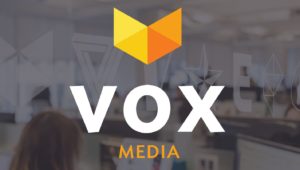By Adam Johnson
Despite the obligatory “to be sure” paragraph, where Yglesias ran through some of the downsides (“they don’t have a checking account and there’s no ATM access”), the post mostly served to promote a new product “for the masses” from Goldman Sachs, a company worth roughly $87 billion. One section in particular was glowing:
What Goldman Sachs has that other online banks don’t is a widely recognized brand name built on excellence in other dimensions of financial services that could help further push internet banking beyond the early adopter demographic.
“A widely recognized brand name built on excellence” would probably not be how the thousands it defrauded with faulty mortgages would describe Goldman Sachs.
Another section that defended the world’s second-largest investment bank against “populist” critics concerned about the merger of investment and retailing banking was equally eyebrow-raising:
For fear of looking like pawns of Wall Street, they won’t come out and say this loudly, but [moderate Democrats] quietly think that it’s safer to have an economy dominated by well-balanced universal banks like JPMorgan Chase than by institutions that focus on a narrow set of business lines. Both the Canadian and European banking systems are dominated by universal banks, and during the 2007 crisis universal banks were more stable than narrower banks.
Missing from this report was any disclosure that Goldman Sachs is a sponsor ofVox’s podcast, The Weeds, co-costed by Yglesias. How much exactly Goldman Sachs pays Vox Media is unknown, but any amount should compel the “new media” company to note this fact when reporting on Goldman Sachs — especially when it’s promoting both its economic and political bottom line.
One of those Goldman-sponsored podcasts last week also served the investment bank’s interests: After much hand-wringing, the episode argued that raising income taxes on the super-wealthy didn’t actually do much to reduce inequality, with Yglesias asserting, “It is not a great idea to adopt an ‘inequality’ focus.” While it’s possible this conclusion may have been arrived at in good faith, it’s easy to see why Goldman Sachs—whose partners are worth an average of $24 million — would be interested in sponsoring a media company that aggressively argues against radical redistributive policies.
Vox Media, which landed a $200 million investment last August fromComcast (the same cable giant that helped seed it back in 2009 and 2012), has had previous disclosure problems. A Vox “explainer” last September (9/8/15;FAIR.org, 9/9/15) asserted that “cable bundling almost certainly saves customers money in aggregate,” singling out Comcast as a company that “may not be much loved by its customers, but it has the weight of their collective voice in its bargaining over carriage fees.” And Vox’s repeated attacks on single-payer healthcare (FAIR.org, 1/30/16) failed to mention that Comcastis a major investor in for-profit healthcare technology companies.
Vox, which ironically announced last November that it will be moving into Goldman Sachs’ old address at 85 Broad Street in New York, has had an advertising relationship with the investment bank that dates back to at least late 2014, when Vox’s Creative team made content for Goldman Sachs to promote its energy investments.
Readers have a right to know when writers are covering their sponsors, especially when that coverage is broadly positive and dovetails with the economic and ideological interests of the company in question.
Adam Johnson is a contributing analyst for FAIR.org. Follow him onTwitter at @AdamJohnsonNYC.
You can contact Vox here (or via Twitter: @VoxDotCom). Please remember that respectful communication is the most effective.

